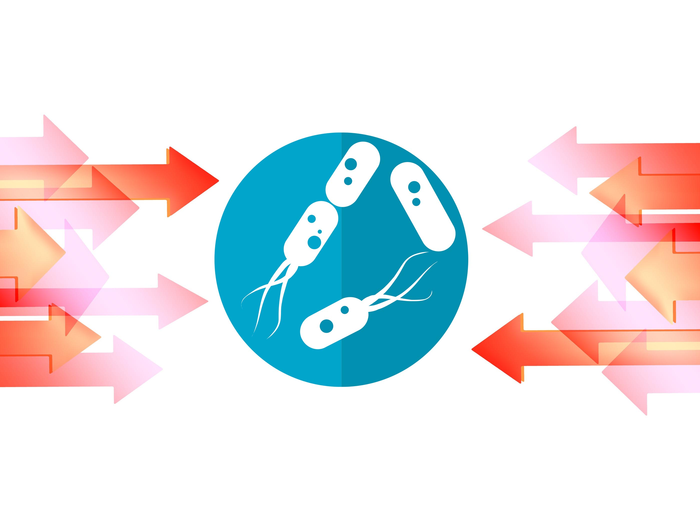When exposed to stress, bacteria allow their metabolism to take a break during which they suppress, for example, the incorporation of proteins into membranes. Scientists from Marburg, Freiburg and Munich have discovered this by biochemically investigating the stress response of microorganisms. The research group led by Marburg biochemist Gert Bange has reported their findings in the scientific journal Nature Communications.

Credit: Max-Planck-Institute for Terrestrial Microbiology/Geisel
When exposed to stress, bacteria allow their metabolism to take a break during which they suppress, for example, the incorporation of proteins into membranes. Scientists from Marburg, Freiburg and Munich have discovered this by biochemically investigating the stress response of microorganisms. The research group led by Marburg biochemist Gert Bange has reported their findings in the scientific journal Nature Communications.
Bacteria respond to stress such as nutrient deficiency or heat with an adaptation of their metabolism, known as the stringent response. “Second messengers or alarm hormones play a central role in this process,” Bange explains. Alarm hormones, for example, act on processes involving the signal recognition particle SRP. “SRP is essential for the formation of membrane proteins and protein secretion,” explains Bange’s collaborator Dr. Laura Czech, a lead author of the paper. The particle ensures that proteins reach their proper destination in the cell’s membranes.
“So far, it was not known to what regulatory mechanisms the signal-recognition particle is subjected to,” says co-author Christopher-Nils Mais, a doctoral researcher in Bange’s lab. The research team conducted molecular biological, biochemical as well as structural biological experiments to determine how the alarm hormones interact with the signal recognition particle.
In particular, the researchers produced electron micrographs at very low temperatures showing how SRP binds to the protein production machinery.
Apparently, the alarm hormones prevent the signal-recognition particle from forming a complex with other molecules, which prevents it from performing its task of incorporating proteins into the membrane.
“Under harsh environmental conditions, bacterial cells can use shutting down important metabolic processes as a pause mechanism,” Gert Bange explains. This break allows the microorganisms to slow down their cellular processes and metabolism so they can recover as soon as conditions become more favorable, the authors hypothesize. “Inhibiting the metabolic pathway leading via the signal recognition particle could be an additional level of cellular control and pausing to survive during stressful times,” Gert Bange concludes.
Journal
Nature Communications
DOI
10.1038/s41467-022-28675-0
Method of Research
Experimental study
Article Title
Inhibition of SRP-dependent protein secretion by the bacterial alarmone (p)ppGpp
Article Publication Date
25-Feb-2022




